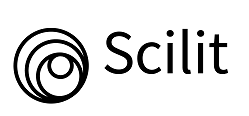Meditación de atención plena en la mujer: ¿qué es ruido y qué es evidencia? Una revisión narrativa
DOI:
https://doi.org/10.25118/2763-9037.2024.v14.1097Palabras clave:
atención plena, salud de la mujer, salud mentalResumen
Introducción: La salud mental de la mujer está influenciada por particularidades y variaciones hormonales que pueden predisponer a una diversidad de trastornos mentales. Basándose en la evidencia de las prácticas de meditación de atención plena (mindfulness) en poblaciones generales, estas intervenciones tienen el potencial de modular la psicopatología femenina, promoviendo mejoras en la salud mental. Objetivos: Este artículo tiene como objetivo realizar una revisión narrativa evaluando la relación entre la práctica de atención plena y la salud mental de la mujer. Métodos: Se realizó una revisión narrativa con el objetivo de evaluar la relación entre la práctica de atención plena y la salud mental de la mujer. Se consultaron bases de datos Pubmed, MEDLINE, Embase y Cochrane, seleccionando artículos en inglés publicados entre 2013 y 2023. Resultados y Discusión: Los resultados de los estudios incluidos en esta revisión señalan la eficacia de la atención plena en el manejo del estrés y en la promoción de la regulación emocional en las mujeres. Las prácticas de meditación de atención plena se han asociado consistentemente con una atenuación de los síntomas de condiciones específicas de la salud mental femenina, tales como el trastorno disfórico premenstrual, depresión, estrés y ansiedad durante el embarazo y el posparto, estrés en la perimenopausia, disfunciones sexuales y trastornos alimentarios, especialmente episodios de atracones y comer emocional. También se evidencian algunas debilidades metodológicas en las investigaciones sobre meditación de atención plena en mujeres. Conclusión: La práctica de mindfulness se destaca como una intervención beneficiosa y con amplias aplicaciones en la salud mental femenina. Se resalta el impacto positivo en el manejo de patologías asociadas al ciclo reproductivo y en los trastornos alimentarios, recomendándose la expansión de investigaciones con mejor calidad metodológica enfocadas en los efectos terapéuticos en el espectro de la salud mental de la mujer.
Descargas
Métricas
Citas
.1. Oyola MG, Handa RJ. Hypothalamic-pituitary-adrenal and hypothalamic-pituitary-gonadal axes: sex differences in regulation of stress responsivity. Stress. 2017;20(5):476-94. https://doi.org/10.1080/10253890.2017.1369523 PMID:28859530 PMCID:PMC5815295
.2. Schiller CE, Johnson SL, Abate AC, Schmidt PJ, Rubinow DR. Reproductive steroid regulation of mood and behavior. Compr Physiol. 2016;6(3):1135-60. https://doi.org/10.1002/cphy.c150014 PMID:27347888 - PMCID:PMC6309888
.3. Goldberg SB, Tucker RP, Greene PA, Davidson RJ, Wampold BE, Kearney DJ, Simpson TL. Mindfulness-based interventions for psychiatric disorders: a systematic review and meta-analysis. Clin Psychol Rev. 2018;59:52-60. https://doi.org/10.1016/j.cpr.2017.10.011 PMID:29126747 PMCID:PMC5741505
.4. Doll A, Holzel BK, Mulej Bratec S, Boucard CC, Xie X, Wohlschlager AM, Sorg C. Mindful attention to breath regulates emotions via increased amygdala-prefrontal cortex connectivity. Neuroimage. 2016;134:305-13. https://doi.org/10.1016/j.neuroimage.2016.03.041 PMID:27033686
.5. Walsh R, Shapiro SL. The meeting of meditative disciplines and Western psychology: a mutually enriching dialogue. Am Psychol. 2006;61(3):227-39. https://doi.org/10.1037/0003-066x.61.3.227 PMID:16594839
.6. Zhang D, Lee EKP, Mak ECW, Ho CY, Wong SYS. Mindfulness-based interventions: an overall review. Br Med Bull. 2021;138(1):41-57. https://doi.org/10.1093/bmb/ldab005 PMID:33884400 - PMCID:PMC8083197
.7. Schuman-Olivier Z, Trombka M, Lovas DA, Brewer JA, Vago DR, Gawande R, Dunne JP, Lazar SW, Loucks EB, Fulwiler C. Mindfulness and behavior change. Harv Rev Psychiatry. 2020;28(6):371-94. https://doi.org/10.1097/hrp.0000000000000277 PMID:33156156 PMCID:PMC7647439
.8. Howarth A, Smith JG, Perkins-Porras L, Ussher M. Effects of brief mindfulness-based interventions on health-related outcomes: a systematic review. Mindfulness (N Y). 2019;10:1957–68. https://doi.org/10.1007/s12671-019-01163-1
.9. Marchand WR. Neural mechanisms of mindfulness and meditation: evidence from neuroimaging studies. World J Radiol. 2014;6(7):471-9. https://doi.org/10.4329/wjr.v6.i7.471 PMID:25071887 - PMCID:PMC4109098
.10. Black DS, Slavich GM. Mindfulness meditation and the immune system: a systematic review of randomized controlled trials. Ann N Y Acad Sci. 2016;1373(1):13-24. https://doi.org/10.1111/nyas.12998 PMID:26799456 - PMCID:PMC4940234
.11. Valk SL, Kanske P, Park BY, Hong SJ, Bockler A, Trautwein FM, Bernhardt BC, Singer T. Functional and microstructural plasticity following social and interoceptive mental training. Elife. 2023;12:e85188. https://doi.org/10.7554/elife.85188 PMID:37417306 - PMCID:PMC10414971
.12. O'Leary K, O'Neill S, Dockray S. A systematic review of the effects of mindfulness interventions on cortisol. J Health Psychol. 2016;21(9):2108-21. https://doi.org/10.1177/1359105315569095 PMID:25673371
.13. Pascoe MC, Thompson DR, Jenkins ZM, Ski CF. Mindfulness mediates the physiological markers of stress: systematic review and meta-analysis. J Psychiatr Res. 2017;95:156-78. https://doi.org/10.1016/j.jpsychires.2017.08.004 PMID:28863392
.14. Nayman S, Konstantinow DT, Schricker IF, Reinhard I, Kuehner C. Associations of premenstrual symptoms with daily rumination and perceived stress and the moderating effects of mindfulness facets on symptom cyclicity in premenstrual syndrome. Arch Womens Ment Health. 2023;26(2):167-76. https://doi.org/10.1007/s00737-023-01304-5 PMID:36899192 - PMCID:PMC10063513
.15. Panahi F, Faramarzi M. The effects of mindfulness-based cognitive therapy on depression and anxiety in women with premenstrual syndrome. Depress Res Treat. 2016;2016:9816481. https://doi.org/10.1155/2016/9816481 PMID:28025621 PMCID:PMC5153465
.16. Li RX, Ma M, Xiao XR, Xu Y, Chen XY, Li B. Perimenopausal syndrome and mood disorders in perimenopause: prevalence, severity, relationships, and risk factors. Medicine (Baltimore). 2016;95(32):e4466. https://doi.org/10.1097/md.0000000000004466 PMID:27512863 PMCID:PMC4985318
.17. Liu H, Cai K, Wang J, Zhang H. The effects of mindfulness-based interventions on anxiety, depression, stress, and mindfulness in menopausal women: a systematic review and meta-analysis. Front Public Health. 2023;10:1045642. https://doi.org/10.3389/fpubh.2022.1045642 PMID:36699873 PMCID:PMC9869042
.18. Jaderek I, Lew-Starowicz M. A systematic review on mindfulness meditation-based interventions for sexual dysfunctions. J Sex Med. 2019;16(10):1581-96. https://doi.org/10.1016/j.jsxm.2019.07.019 PMID:31570137
.19. Banbury S, Lusher J, Snuggs S, Chandler C. Mindfulness-based therapies for men and women with sexual dysfunction: a systematic review and meta-analysis. Sex Relatsh Ther. 2023;38(4):533–55. https://doi.org/10.1080/14681994.2021.1883578
.20. Screening and diagnosis of mental health conditions during pregnancy and postpartum: ACOG Clinical Practice Guideline no. 4. Obstet Gynecol. 2023;141(6):1232-61. https://doi.org/10.1097/aog.0000000000005200 PMID:37486660
.21. Yan H, Wu Y, Li H. Effect of mindfulness-based interventions on mental health of perinatal women with or without current mental health issues: a systematic review and meta-analysis of randomized controlled trials. J Affect Disord. 2022;305:102-14.https://doi.org/10.1016/j.jad.2022.03.002 PMID:35257692
.22. Corbally L, Wilkinson M. The effect of mindfulness-based interventions on stress, depression and anxiety during the perinatal period in women without pre-existing stress, depressive or anxiety disorders: a systematic review and meta-analysis of controlled trials. Mindfulness (N Y). 2021;12:2357–70. https://doi.org/10.1007/s12671-021-01697-3
.23. Lonnberg G, Jonas W, Unternaehrer E, Branstrom R, Nissen E, Niemi M. Effects of a mindfulness based childbirth and parenting program on pregnant women's perceived stress and risk of perinatal depression-results from a randomized controlled trial. J Affect Disord. 2020;262:133-42. https://doi.org/10.1016/j.jad.2019.10.048 PMID:31733457
.24. Zhang D, Tsang KWK, Duncan LG, Yip BHK, Chan DCC, Lee EKP, Gao TT, Tam WH, Lam KY, Tong WH, Bardacke N, Wong SYS. Effects of the mindfulness-based childbirth and parenting (MBCP) program among pregnant women: a randomized controlled trial. Mindfulness (N Y). 2023;14:50–65. https://doi.org/10.1007/s12671-022-02046-8
.25. American Psychiatric Association. Manual diagnóstico e estatístico de transtornos mentais: DSM-5. 5. ed. Porto Alegre: Artmed; 2014.
.26. Udo T, Grilo CM. Prevalence and correlates of DSM-5-defined eating disorders in a nationally representative sample of U.S. adults. Biol Psychiatry. 2018;84(5):345-54. https://doi.org/10.1016/j.biopsych.2018.03.014 PMID:29859631 - PMCID:PMC6097933
.27. Duncan AE, Ziobrowski HN, Nicol G. The prevalence of past 12-month and lifetime DSM-IV eating disorders by BMI category in US men and women. Eur Eat Disord Rev. 2017;25(3):165-71. https://doi.org/10.1002/erv.2503 PMID:28127825
.28. Beccia AL, Dunlap C, Hanes DA, Courneene BJ, Zwickey HL. Mindfulness-based eating disorder prevention programs: a systematic review and meta-analysis. Ment Health Prev. 2018;9:1–12. https://psycnet.apa.org/doi/10.1016/j.mhp.2017.11.001
.29. Sala M, Shankar Ram S, Vanzhula IA, Levinson CA. Mindfulness and eating disorder psychopathology: a meta-analysis. Int J Eat Disord. 2020;53(6):834-51. https://doi.org/10.1002/eat.23247 PMID:32100320
.30. Katterman SN, Kleinman BM, Hood MM, Nackers LM, Corsica JA. Mindfulness meditation as an intervention for binge eating, emotional eating, and weight loss: a systematic review. Eat Behav. 2014;15(2):197-204. https://doi.org/10.1016/j.eatbeh.2014.01.005 PMID:24854804
.31. Dantas AEC, Silva ADM, Lins JA, Neves Filho GHC, Nunes GRB, Bezerra KFO. Mindfulness como terapêutica nos distúrbios alimentares: uma revisão integrativa de literatura. Braz J Health Rev. 2021;4(2):9076–93. https://doi.org/10.34119/bjhrv4n2-413
.32. Sala L, Gorwood P, Vindreau C, Duriez P. Mindfulness-based cognitive therapy added to usual care improves eating behaviors in patients with bulimia nervosa and binge eating disorder by decreasing the cognitive load of words related to body shape, weight, and food. Eur Psychiatry. 2021;64(1):e67. https://doi.org/10.1192/j.eurpsy.2021.2242 PMID:34706785 PMCID:PMC8668447
.33. Kristeller J, Wolever RQ, Sheets V. Mindfulness-based eating awareness training (MB-EAT) for binge eating: a randomized clinical trial. Mindfulness (N Y). 2014;5:282–97. https://doi.org/10.1007/s12671-012-0179-1
.34. Ye M, Shou M, Zhang J, Hu B, Liu C, Bi C, Lv T, Luo F, Zhang Z, Liang S, Feng H, Qian C, Cao S, Liu Z. Efficacy of cognitive therapy and behavior therapy for menopausal symptoms: a systematic review and meta-analysis. Psychol Med. 2022;52(3):433-45. https://doi.org/10.1017/s0033291721005407 PMID:35199638

Publicado
Cómo citar
Número
Sección
Licencia
Derechos de autor 2024 Igor Emanuel Vasconcelos e Martins Gomes, Maria Marta Neves de Oliveira, Patrícia Pimenta Lemos, Priscilla Santos Miguel Maistro, Christiane Carvalho Ribeiro, Hewdy Lobo Ribeiro, Jerônimo de Almeida Mendes Ribeiro, Ritele Hernandez da Silva , Antônio Geraldo da Silva, Joel Rennó Junior

Esta obra está bajo una licencia internacional Creative Commons Atribución-NoComercial 4.0.
Debates em Psiquiatria permite que el (los) autor (es) mantenga(n) sus derechos de autor sin restricciones. Permite al (los) autor (es) conservar sus derechos de publicación sin restricciones. Los autores deben garantizar que el artículo es un trabajo original sin fabricación, fraude o plagio; no infringe ningún derecho de autor o derecho de propiedad de terceros. Los autores también deben garantizar que cada uno atendió a los requisitos de autoría conforme a la recomendación del ICMJE y entienden que, si el artículo o parte de él es fallido o fraudulento, cada autor comparte la responsabilidad.
Reconocimiento-NoComercial 4.0 internacional (CC BY-NC 4.0) - Debates em Psiquiatria es regida por la licencia CC-BY-NC
Usted es libre de:
- Compartir — copiar y redistribuir el material en cualquier medio o formato
- Adaptar — remezclar, transformar y crear a partir del material
El licenciador no puede revocar estas libertades mientras cumpla con los términos de la licencia. Bajo las condiciones siguientes:
- Reconocimiento — Debe reconocer adecuadamente la autoría, proporcionar un enlace a la licencia e indicar si se han realizado cambios<. Puede hacerlo de cualquier manera razonable, pero no de una manera que sugiera que tiene el apoyo del licenciador o lo recibe por el uso que hace.
- NoComercial — No puede utilizar el material para una finalidad comercial.
No hay restricciones adicionales — No puede aplicar términos legales o medidas tecnológicas que legalmente restrinjan realizar aquello que la licencia permite.





























